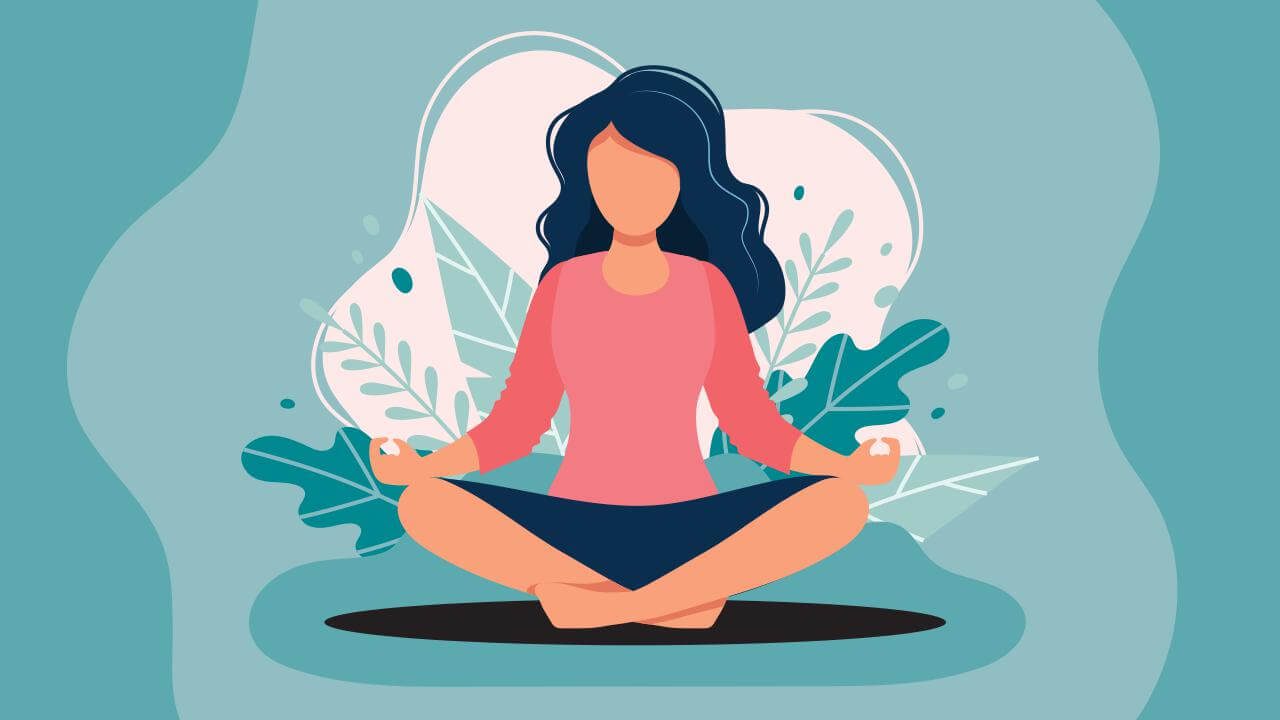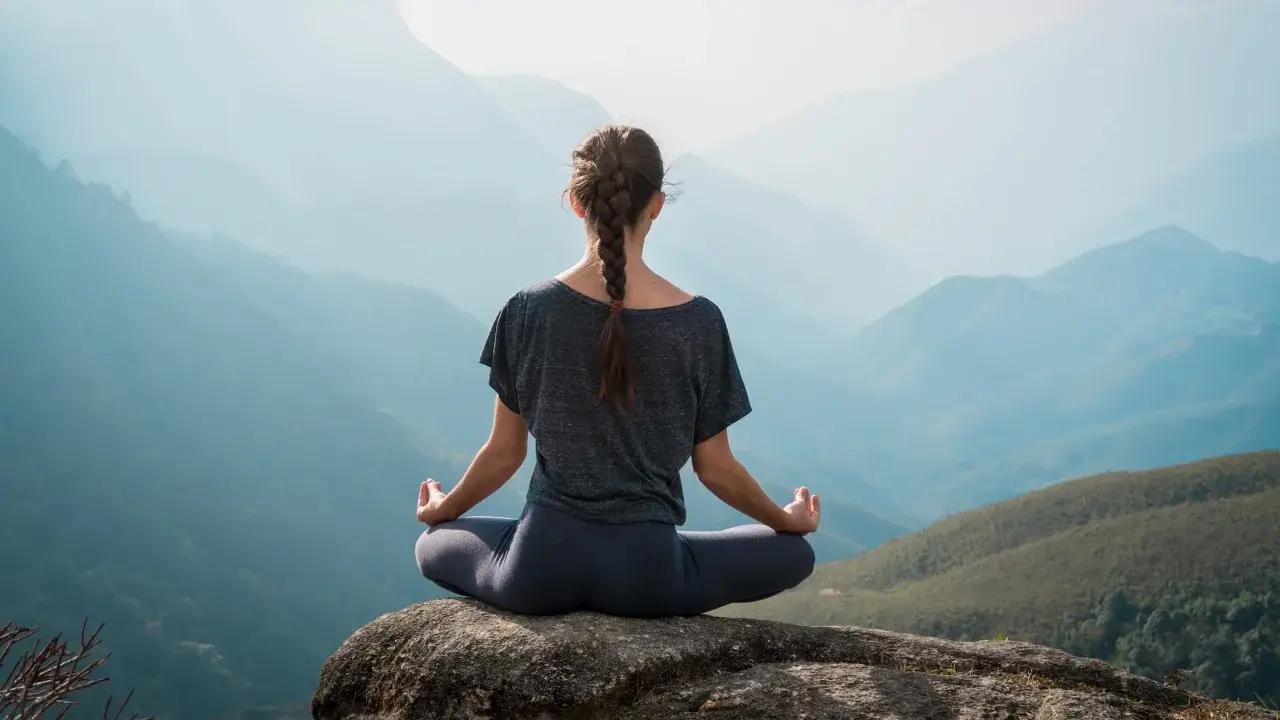
Meditation: Cultivating Inner Peace and Well-Being in a Hectic World
In the fast-paced, demanding world we live in, finding moments of peace and tranquillity can be a challenge. However, there is a timeless practice that has endured for thousands of years and continues to gain popularity in modern times: meditation. Meditation is not just a trendy fad or a spiritual practice reserved for monks and yogis; it is a powerful tool that can benefit anyone willing to give it a try.
At its core, meditation is a practice of training the mind to focus and redirect thoughts, resulting in a state of clarity, calmness, and increased awareness. It involves sitting in a comfortable position, closing your eyes, and engaging in various techniques that promote relaxation and mental clarity. While meditation is often associated with Eastern spiritual traditions such as Buddhism and Hinduism, it is important to note that meditation can be practised in a secular context, devoid of any religious or spiritual connotations.
10 minutes of daily meditation will Increase your Performance
The benefits of meditation are far-reaching and have been validated by numerous scientific studies. One of the most prominent effects of meditation is stress reduction. In today’s fast-paced world, stress has become a prevalent issue affecting people of all ages and backgrounds. Regular meditation practice has been shown to lower levels of the stress hormone cortisol, decrease anxiety and depression, and enhance overall emotional well-being. By dedicating a few minutes each day to meditation, individuals can cultivate a sense of inner peace and resilience, allowing them to navigate life’s challenges with greater ease.
Furthermore, meditation has been found to improve focus and concentration. In a world filled with distractions and constant sensory stimulation, the ability to maintain attention on a single task has become increasingly difficult. Meditation trains the mind to focus on the present moment, helping individuals become more present and attentive in their daily lives. Whether it’s studying for an exam, completing a work project, or simply having a meaningful conversation with a loved one, the practice of meditation enhances cognitive abilities, allowing for a deeper and more meaningful engagement with the task at hand.
In addition to its mental and emotional benefits, meditation has been linked to physical well-being. Research has shown that regular meditation practice can lower blood pressure, boost the immune system, and even reduce the risk of heart disease. By promoting relaxation and reducing stress, meditation positively impacts the body’s physiological responses, leading to improved overall health.
Getting started with meditation is easier than ever before. There are numerous resources available, including meditation apps, online courses, and guided meditation recordings, that can assist beginners in establishing a meditation practice. It is important to approach meditation with an open mind and a non-judgmental attitude. Like any skill, meditation takes time and practice to develop. Initially, you may find it challenging to quiet your mind and maintain focus, but with consistent effort, you will gradually experience the transformative power of meditation.
How to control the mind during meditation
To reap the benefits of meditation, it is recommended to incorporate it into your daily routine. Start by setting aside a few minutes each day to sit in a quiet space, free from distractions. Begin with deep, intentional breaths to ground yourself in the present moment. You can then choose a specific technique to focus on, such as following the breath, repeating a mantra, or observing sensations in the body. As thoughts arise, simply acknowledge them without judgment and gently bring your attention back to the chosen focal point. Over time, you will notice a greater sense of calmness, clarity, and overall well-being permeating your life.
History of Meditation

Meditation has been practised since antiquity in numerous religious traditions and beliefs. Since the 19th century, it has spread from its origins to other cultures where it is commonly practised in private and business life.
The history of meditation is intimately bound up with the religious context within which it was practised. Some authors have even suggested the hypothesis that the emergence of the capacity for focused attention, an element of many methods of meditation, may have contributed to the latest phases of human biological evolution. Some of the earliest references to meditation are found in the Hindu Vedas of India.
Wilson translates the most famous Vedic mantra “Gayatri” as: “We meditate on that desirable light of the divine Savitri, who influences our pious rites” (Rigveda: Mandala-3, Sukta-62, Rcha-10). Around the 6th to 5th centuries BCE, other forms of meditation developed via Confucianism and Taoism in China as well as Hinduism, Jainism, and early Buddhism in Nepal and India.
In the Roman Empire, by 20 BCE Philo of Alexandria had written on some form of “spiritual exercises” involving attention (prosocial) and concentration and by the 3rd century, Plotinus had developed meditative techniques.
The Pāli Canon, which dates to the 1st century BCE considers Buddhist meditation as a step towards liberation. By the time Buddhism was spreading in China, the Vimalakirti Sutra which dates to 100 CE included a number of passages on meditation, clearly pointing to Zen (known as Chan in China, Thiền in Vietnam, and Seon in Korea). The Silk Road transmission of Buddhism introduced meditation to other Asian countries, and in 653 the first meditation hall was opened in Singapore. Returning from China around 1227, Dōgen wrote the instructions for zazen.
Some popular meditation techniques
Meditation is not limited to a single technique or approach. There are various forms of meditation, each with its own unique focus and benefits. Some popular meditation techniques include:
Mindfulness Meditation:
This practice involves bringing your attention to the present moment and observing your thoughts, feelings, and sensations without judgment. It cultivates a sense of non-reactive awareness and helps you develop a deep understanding of your inner experiences.
Loving-Kindness Meditation:
Also known as Metta meditation, this technique involves generating feelings of love, compassion, and goodwill towards yourself, loved ones, acquaintances, and even difficult individuals. It promotes a sense of connection, empathy, and positive emotions.
Transcendental Meditation:
This practice involves silently repeating a mantra—a specific word or phrase—to achieve a state of deep relaxation and transcendence. It aims to quiet the mind and access a state of pure consciousness beyond thought.
Body Scan Meditation:
This technique involves systematically scanning your body from head to toe, bringing attention to each part and noticing any sensations or areas of tension. It promotes relaxation, body awareness, and the release of physical tension.

Breath Awareness Meditation:
Focusing on the breath is a common technique in meditation. It involves observing the natural flow of the breath, bringing attention back whenever the mind wanders. This practice cultivates present-moment awareness and a sense of centeredness.
It’s important to remember that there’s no “right” or “wrong” way to meditate. The key is to find a technique that resonates with you and fits your lifestyle. You can experiment with different approaches and adjust them based on your needs and preferences.
Consistency is key when it comes to meditation. While even a few minutes of meditation can be beneficial, aim to gradually increase the duration of your practice. Set aside a dedicated time each day, preferably in a quiet and comfortable space where you won’t be easily disturbed.
Meditation can also be complemented by other practices to enhance its effects. Incorporating mindful movement practices such as yoga or tai chi can help cultivate a deeper mind-body connection. Engaging in gratitude journaling or reflective writing can amplify the positive emotions and insights gained during meditation.
As you progress in your meditation journey, you may consider attending meditation retreats or joining a meditation group or class. These opportunities provide a supportive environment and guidance from experienced teachers, deepening your practice and connecting you with a community of like-minded individuals.
“World Environment Day: Uniting for a Sustainable Future and Environmental Conservation”
It’s worth noting that meditation is not a quick fix or a magical solution to all of life’s challenges. It requires patience, dedication, and a willingness to explore your inner landscape. As you continue to meditate, you’ll likely experience ups and downs. Some sessions may feel calm and serene, while others may be filled with a restless mind. Remember to approach each meditation session with an open and accepting attitude, embracing whatever arises without judgment.
Some points to consider when exploring the practice of meditation
Certainly! Here are some additional points to consider when exploring the practice of meditation:
Overcoming Challenges:
It’s important to acknowledge that meditation can sometimes be challenging, especially in the beginning. It’s common to experience a wandering mind, restlessness, or difficulty in maintaining focus. Remember that these are normal experiences and part of the meditation process. Be patient with yourself and gently bring your attention back whenever you notice your mind has wandered. With time and practice, you will develop greater stability and clarity in your meditation practice.
Integrating Mindfulness into Daily Life:
The benefits of meditation extend beyond the time spent on the cushion or mat. The practice of mindfulness, cultivated through meditation, can be integrated into your daily activities. By bringing mindful awareness to everyday tasks such as eating, walking, or even washing dishes, you can transform mundane moments into opportunities for presence and deep connection with the present moment.
Cultivating Compassion:
Meditation can help foster a sense of compassion towards oneself and others. As you develop a deeper understanding of your own thoughts and emotions through meditation, you naturally develop empathy and compassion for the struggles and experiences of others. This compassion extends not only to those you know but also to strangers and even difficult individuals in your life. Cultivating compassion can lead to more harmonious relationships and a greater sense of interconnectedness.
Exploring Different Meditation Settings:
While meditation is often associated with sitting quietly in a serene environment, it can also be practised in various settings and activities. Walking meditation, for example, involves focusing on the sensations of walking and the movement of your body. Other activities such as gardening, painting, or playing a musical instrument can be approached with a meditative mindset, fully immersing yourself in the present moment and the activity at hand.

Seek Guidance and Support:
If you find it challenging to establish or maintain a consistent meditation practice, consider seeking guidance or support. Meditation teachers, mindfulness coaches, or meditation groups can offer valuable insights, guidance, and a supportive community. They can provide you with techniques, answer your questions, and offer encouragement on your meditation journey.
Patience and Non-Judgment:
It’s important to approach your meditation practice with patience and non-judgment. Meditation is a personal journey, and progress may not always be linear or immediately apparent. Instead of focusing on achieving a specific outcome, embrace the process and the subtle changes that occur over time. Release any expectations or self-criticism and cultivate an attitude of self-compassion and acceptance.
Remember, meditation is a practice that evolves and deepens with time and commitment. The benefits you derive from meditation will be unique to you and may unfold gradually. Embrace the journey, be open to exploration, and allow yourself the gift of stillness and self-discovery through the transformative power of meditation.
In conclusion, meditation is a powerful practice that offers numerous benefits for the mind, body, and spirit. It provides a sanctuary of calmness and clarity in the midst of a busy world. By integrating meditation into your life, you can cultivate inner peace, enhance well-being, and develop a greater sense of self-awareness and compassion. Embrace the practice, stay open to the possibilities, and let meditation be your guide to a more mindful, balanced, and fulfilling life.




